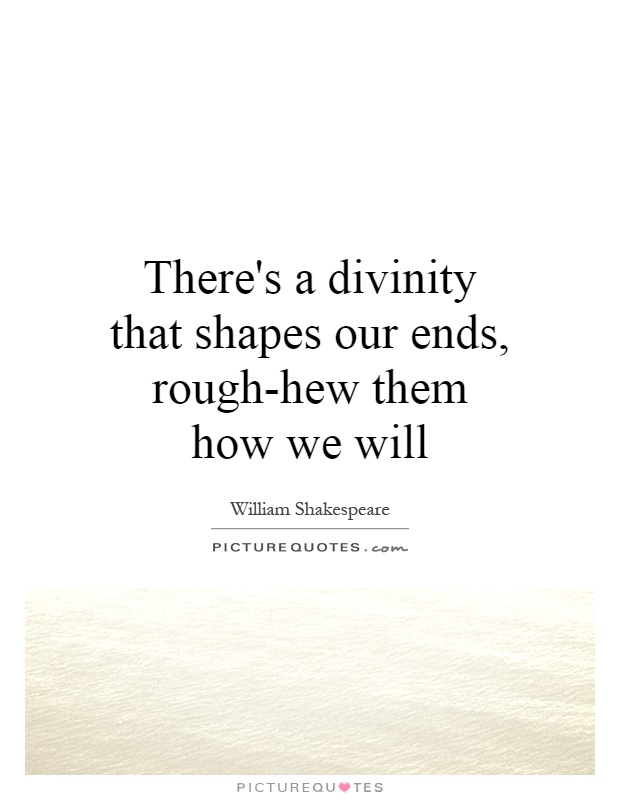There's a divinity that shapes our ends, rough-hew them how we will

There's a divinity that shapes our ends, rough-hew them how we will
William Shakespeare's play "Hamlet" is filled with profound insights into the human condition, and one of the most famous lines from the play is "There's a divinity that shapes our ends, rough-hew them how we will." This line, spoken by Hamlet himself, reflects the idea that there is a higher power at work in the world, guiding our destinies even as we try to shape our own lives through our actions and decisions.In the context of Shakespeare's work, this line can be seen as a reflection of the playwright's own beliefs about fate and free will. Throughout his plays, Shakespeare explores the tension between the idea that our lives are predetermined by fate and the belief that we have the power to shape our own destinies through our choices and actions. In "Hamlet," this tension is particularly pronounced as the titular character grapples with the question of whether to take action against his uncle, who has murdered his father and married his mother.
Hamlet's famous soliloquy, in which he contemplates the nature of existence and the afterlife, is a reflection of his struggle to understand the forces at work in his life. The line "There's a divinity that shapes our ends, rough-hew them how we will" can be seen as Hamlet's acknowledgment that there is a higher power guiding his actions, even as he tries to take control of his own fate.
This idea of a higher power shaping our destinies is a recurring theme in Shakespeare's work. In plays like "Macbeth" and "King Lear," characters grapple with the idea that their lives are governed by forces beyond their control, leading to tragic consequences. Shakespeare's exploration of fate and free will in his plays reflects the complexity of the human experience, as characters struggle to understand their place in the world and the forces that shape their lives.












 Friendship Quotes
Friendship Quotes Love Quotes
Love Quotes Life Quotes
Life Quotes Funny Quotes
Funny Quotes Motivational Quotes
Motivational Quotes Inspirational Quotes
Inspirational Quotes